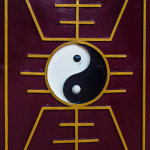Confucius and the Buddha are well-known names in the West, but how many have heard of Lao-Tse? The name of the founder of the lesser-known philosophy called Taoism is something that perhaps only a recce soldier would know…
Philosophical baseline
There were three main schools of thought in Ancient China, each of which has something useful for modern recce soldiers. At the root of Confucianism is the idea that at some point our ancestors had a perfect system of order from which we have now deviated. It tries to get back to this point by following strict procedures and rituals revering that which has gone before. The practice of military footdrill is a very Confucian activity. The second is Buddhism, which actually originated in India before finding its way over the Himalayas. At the heart of Buddhism is the concept that this world is full of suffering and we should aim to free ourselves from it by working on self-discipline and over many reincarnations to transcend our earthly bonds. There are Four Noble Truths in Buddhism: first, that all life is suffering; second, that suffering is caused by ignorance; third, the happy revelation that ignorance can be overcome; and fourth, the practice of repetition and refinement leading towards perfection. Military instructors taking their students through their 99th session on section attacks, about turns on the march, or burpees can reassure them that more practice will free them from suffering.
The third, and oldest, is Taoism (pronounced Dow-ism). Tao simply means ‘the Way’. It differs from the other two by aiming to work in harmony with the world instead of fighting either to impose order on it or escape it. One classic illustration of Taoism concerns a boulder in a stream. Whereas a Confucian would explode or dislodge or lift the boulder out of the way, a Taoist would let the water continue to flow under, around and over it. In time the boulder will be worn to a pebble and float away. All the while the water has continued to pass. This spirit of going with the flow is valuable for the reconnaissance soldier, who must survive deep in enemy territory, outnumbered and out of reach of help, trying to understand their adversary while not getting decisively engaged. It may also remind you of a bypass policy.
Open your eyes
A recce soldier’s first and foremost task is to help the commander’s understanding of the world: both the terrain and its inhabitants. They must approach the situation before them with an open mind, banishing preconceptions so they have a true picture. Otherwise they will be liable to being fooled by an enemy’s deception or, worse, by their own assumptions. As warfare is a fundamentally human endeavour, they need to conceive of their enemy as real people, more than just map marking symbols on an overlay. In a similar way, the Taoist is not concerned with how the world was, or how it should be. Taoists need to know how it really is, to relax and open their eyes, in order to move in harmony with it. If the recce soldier is not alert and receptive to the world around them, they will not only fail to carry out their most important mission but they will be lucky to survive.
Linked to this is understanding of oneself. While bluster and bravado can be of merit in the close battle, in the dangerous world of the deep battlespace knowledge of one’s strengths and limitations is vital. This need not be disheartening; on the contrary, familiarity with one’s weaknesses means they are less likely to be exploited and this is therefore a strength. It should inspire confidence. A Taoist values themselves as they are; a recce soldier who did not value themselves would either throw themselves away on some kamikaze mission or not have the confidence to push forward and gain that key piece of intelligence.
Perhaps the highest goal of Taoism is wu wei, roughly translated as ‘without doing’. The idea is that one is so in harmony with the natural order that one can achieve things without effort. Not only will the principle of ‘economy of effort’ be familiar to every soldier, the idea of being in the right place at the right time is key to a successful observation post or recce patrol. Anyone who has to thrive and survive on their own for a long period will also treasure efficiency. Preserving resources, conserving effort, and eliminating wastefulness mean an easier ride and longer in the field. Lao-Tse said that whoever wasn’t happy with a little, wouldn’t be happy with a lot either. Those on a long range patrol must certainly learn to be happy with a little. Wu wei is important for recce in another way, linked somewhat surprisingly to quantum mechanics. When we look at something, we change it. But a purist recce soldier usually wants to understand the situation as it is, not change it. This is the advantage of recce by stealth over recce by fire (though that too can have its place).
Some of these may sound familiar, and no wonder as The Art of War is in the main a strongly Taoist work. “Know thyself and your enemy and you will have a thousand victories.” You may groan at another Sun-Tzuism but while it is usually thought of as applying to the strategic level, it has absolute tactical application for a recce soldier. Taoism has many concepts that we are faintly familiar with in the modern Western world, from yin and yang (balance) to feng shui (harmony) and if you open your heart to its philosophies, with just a little effort in the right place, you may benefit beyond expectations. For what is recce for but finding the Way?

David
David has spent 15 years in and out of Formation Reconnaissance and once lived in a Tibetan monastery


